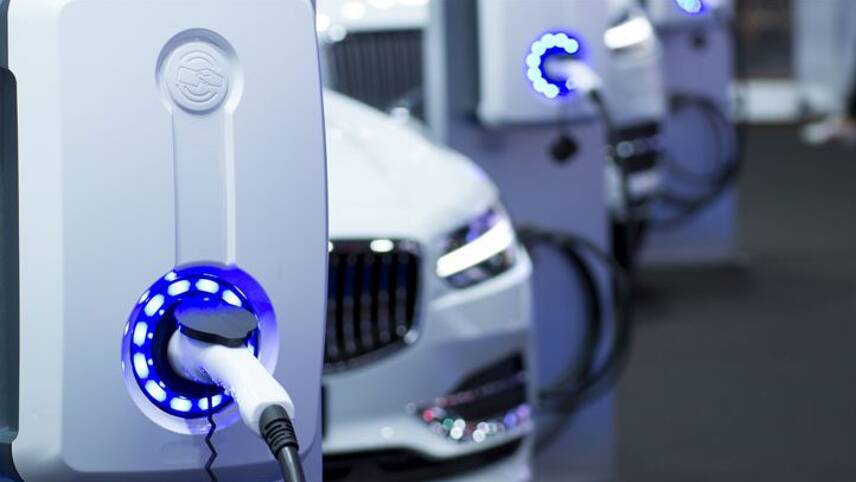Register for free and continue reading
Join our growing army of changemakers and get unlimited access to our premium content

New Automotive notes that Tesla currently tops the list for most EVs registered year-on-year
Data published today (6 January) by the Society for Motor Manufacturers and Traders (SMMT) reveals that 1.63 million new cars were registered in the UK during 2020, compared with 2.3 million in 2019. The 29% year-on-year decline is the steepest seen since World War 2, according to the body. The last time that just 1.63 million new cars were registered was in 1992.
The EV market, however, was not hit as hard as the market for petrol and diesel models. Of the new cars registered in 2019, just 1.5% were pure electric. The proportion stood at 6.5% in 2020. Similar growth was recorded for plug-in-hybrids. Overall, more than one in ten cars registered was either pure electric or hybrid.
Some 108,200 battery electric vehicles and 66,870 plug-in hybrids were registered during 2020. More than two-thirds of these registrations were for company cars, indicative of the growing movement towards fleet electrification among businesses of all sizes.
Auto Trader’s commercial director Ian Plummer appeared on BBC radio this morning, stating that sales of new EVs and plug-in-hybrids could overtake diesel sales for the first time this year. Like other analysts, he pointed to the ban on new petrol and diesel car sales being brought forward to 2030 and to the public’s wish to lock in the reductions in transport emissions and air pollution recorded during lockdown.
In a statement released alongside the data, the SMMT said that key players in the UK’s automotive industry see EVs are a core part of their plans for recovering from the financial hit of the pandemic. Its members are planning to bring 35 new electric models to the UK market in 2021, marking a record year-on-year increase.
“With the rollout of vaccines and clarity over our new relationship with the EU, we must make 2021 a year of recovery,” SMMT chief executive Mike Hawes said. “With manufacturers bringing record numbers of electrified vehicles to market over the coming months, we will work with the government to encourage drivers to make the switch, while promoting investment in our globally-renowned manufacturing base – recharging the market, industry and economy.”
Policy gaps
Nonetheless, the SMTT believes that more must be done to stimulate battery production in the UK in the post-Brexit landscape. Under current investment plans, UK battery factories will collectively have a capacity of 15 GWh by 2023 – enough to produce 250,000 EVs per year. The SMTT wants to see the Government and industry collaborate to bring a further 45 GWh online through to 2030.
The SMTT also stated that stronger policy support will be needed to encourage EV uptake among individual motorists. Specifically, it has posited better financial incentives and more investment in public charging infrastructure, particularly in on-street scenarios.
The 2020 Budget saw the Government announcing a new commitment of ensuring that all EV drivers in the UK are never more than 30 miles away from a publicly accessible fast EV charger. Chancellor Rishi Sunak confirmed a £500m support package for fast charging networks to support progress.
UK businesses and policymakers have faced repeated warnings that the scale of EV adoption has far outpaced the introduction of charging infrastructure in recent times. PwC, for example, has claimed that UK’s EV stock reached 134,000 vehicles in 2017 – a 54% increase on 2016 figures – but that there were only 13,500 charging points to support these vehicles at that time. Chargers have since been installed at retail and community hubs by many large businesses, including KFC, McDonald’s, Marston’s, Lidl, Morrisons, Tesco and Mitchells & Butlers. Progress with on-street charging seems to be slower, with many councils claiming they need more financial support from central government to deliver on their ambitions in this space.
According to Department for Transport data, the UK’s EV charging network and now consists of around 19,500 charge points, 3,500 of which are rapid.
The great EV switchover
In related news, Zap-Map has this week published the results of a survey of 2,000 UK motorists, conducted to garner EV-related habits and plans.
91% of the respondents – who were selected because they already use EVs – said they would never consider switching back to petrol or diesel. Only 1% said they were definitely keen to switch back.
Zap-Map’s co-founder Melanie Shufflebotham said this finding evidences “the strong and enduring impact of switching to a clean car.”
“The challenge for the automotive industry is to take advantage of the opportunities that EVs present, not only in terms of the rapidly expanding range, but also ensuring that sales staff are knowledgeable enough to present the benefits to their customers,” she added.
Sarah George


The power has to be somewhere; in this case the power station, nuclear or fossil fuel.
For fossil fuelled power stations, this is where the CO2 arises. We have little nuclear power, and, as I understand it, little prospect of much more. A little bit of renewable power.
I don’t see much alteration of the overall power generation position.
The "clean" car has merely had its CO2 generated elsewhere. Unburned hydrocarbon emissions are a separate matter.
Richard Phillips